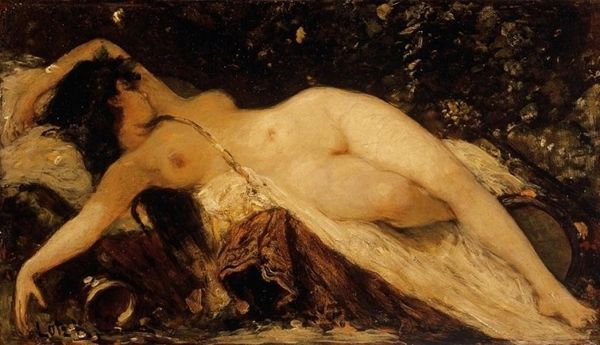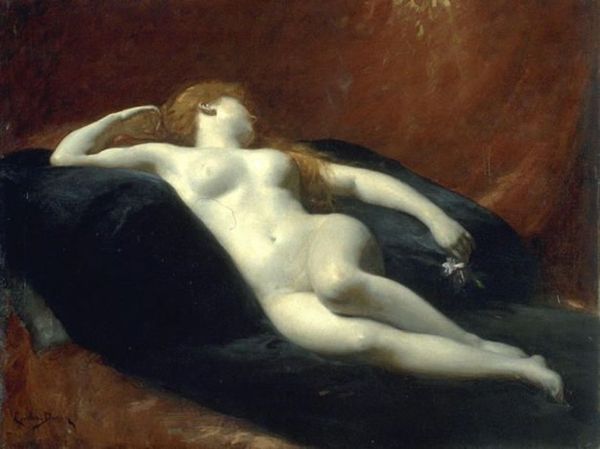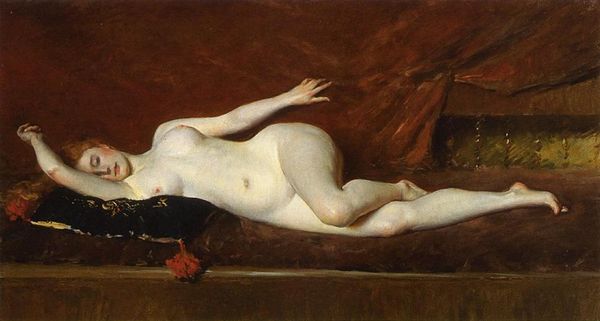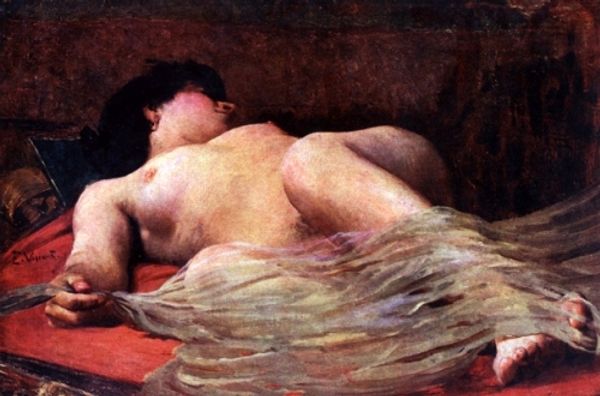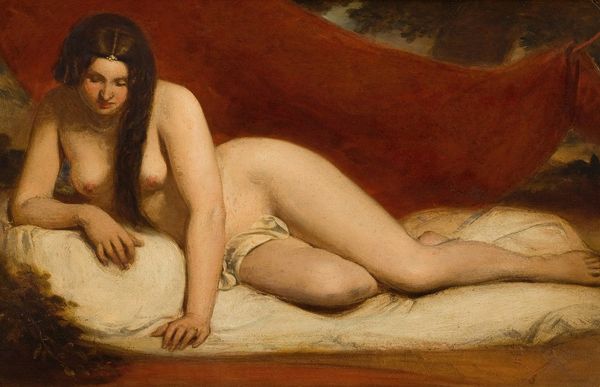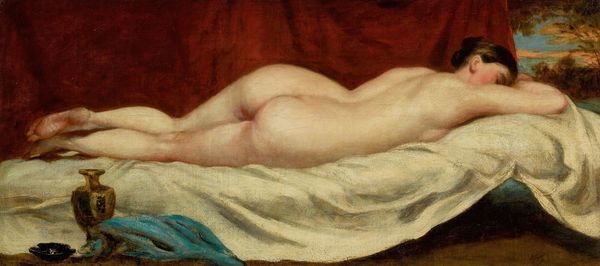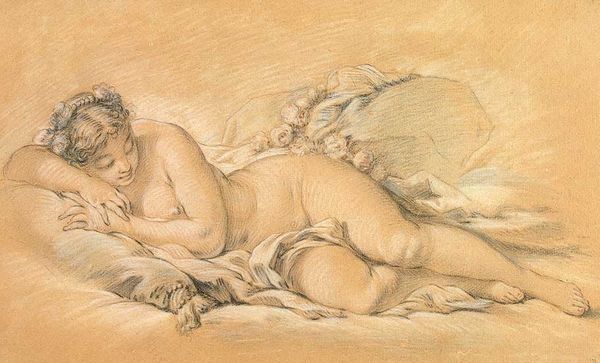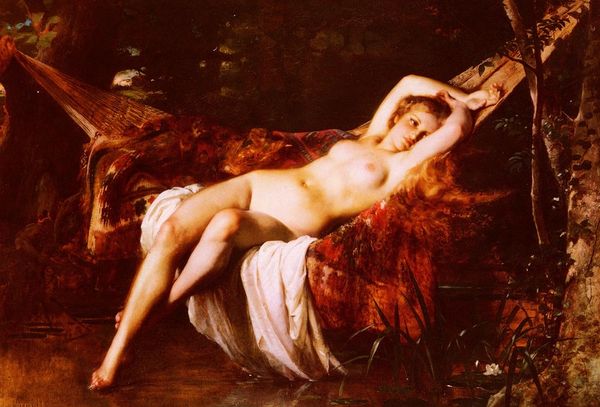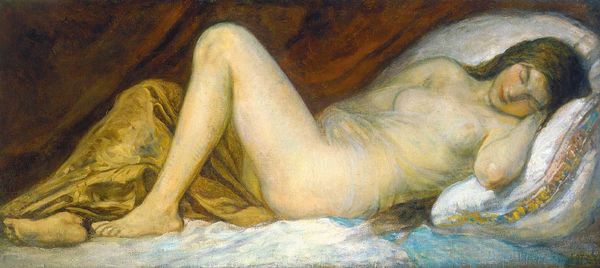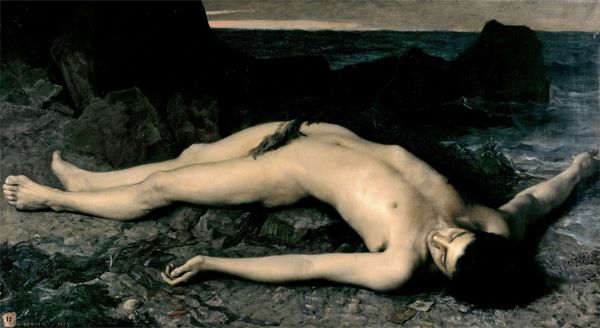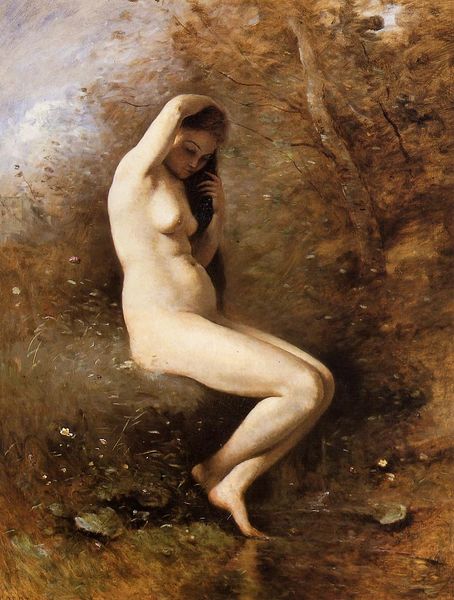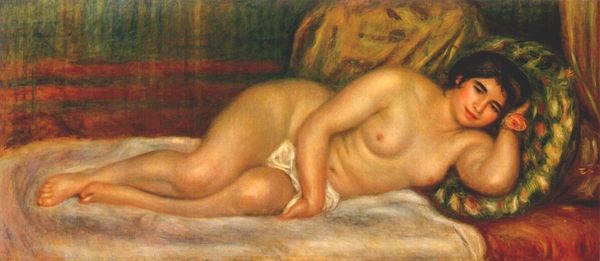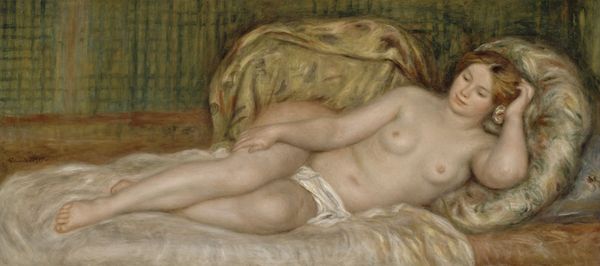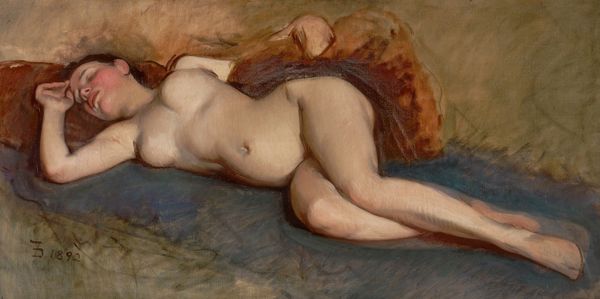
painting, oil-paint
#
allegory
#
painting
#
oil-paint
#
oil painting
#
romanticism
#
nude
#
erotic-art
Copyright: Public domain
Curator: Well, here we have Károly Lotz's oil painting, "Venus and Amor." There's no specific date associated with it, but it clearly speaks to themes prevalent in Romanticism. What are your immediate thoughts? Editor: It's... drowsy. Erotically charged but also, undeniably drowsy. The application of paint creates a hazy, dreamlike atmosphere. I find myself focusing on the tactile nature of the canvas itself. Curator: Indeed. You can see the brushstrokes so distinctly, particularly in the treatment of the bedding. Consider the social context around nudes in art - what boundaries of acceptability Lotz was negotiating, and the dialogue surrounding the female form as both powerful and objectified. Editor: Absolutely. This reminds me of ongoing debates within feminist theory concerning the male gaze and how art contributes to constructions of femininity and sexuality. The eroticism feels so deliberately composed; Venus and Amor both feel posed, presented for consumption. Are they rendered passive, stripped of agency in their depiction? Curator: Let’s think about that pose from the materialist point of view. The deliberate posing isn’t just about presentation, it also represents hours of work on Lotz's part and whoever laid or stood for him. We also shouldn't neglect how paintings like this served as blueprints and inspiration for commercial and pornographic imagery for years to come, especially with developments in photography. Editor: That connection to material creation through physical labor provides a fresh view on the art's place within history, moving from allegory to labor conditions that contribute to art production itself. The layering of material creates this mood—do we feel complicit, objectifying the figures simply by studying the piece so intimately? Curator: Well, complicity in an inherently unequal art economy—both then and now—is inescapable. Acknowledging it, considering the layers—of paint and implication—helps challenge it, even if it’s in this modest, painted space. Editor: Ultimately, I suppose there is complexity beyond the initial romanticism and drowsiness. Thanks!
Comments
No comments
Be the first to comment and join the conversation on the ultimate creative platform.
